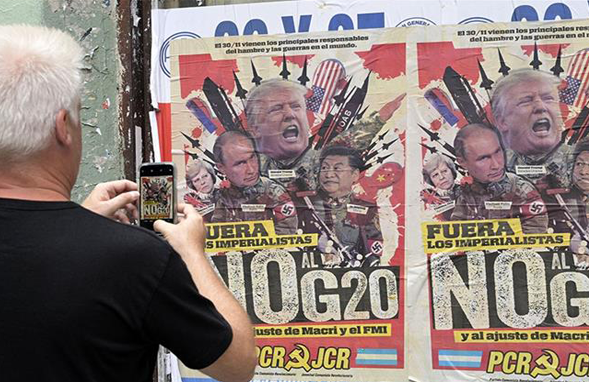
The civil societies in Argentina have come together to protest against the G20 summit to be held on Friday. The People’s Summit, organised by Argentine civil society organisations, Confluence G20 and IMF Out, that began on Wednesday, denounced the imperialist nature of the G20 summit
Civil societies congregated at the Argentine capital, Buenos Aires on Wednesday and Thursday for the People’s Summit. The summit is being held ahead of the G20 summit, which starts Friday. The People’s Summit, on Wednesday, was held at the University of Buenos Aires and discusses the need for peaceful and just policymaking. IMF Out and Confluence G20, the principal organisers of the People’s Summit have critiqued G20 for developing policies that favour imperialist nations. “We reject policies which favour large multinationals and imperialist countries and not the people or the rights of nature”, said IMF Out spokesperson, Beverly Keene.
The G20 summit will witness a leaders’ meet of nineteen of the world’s most developed and rapidly developing nations along with the European Union. The summit will be taking place in Argentina and will hold deliberations on global concerns like agriculture, development, employment, and trade.
The People’s Summit will continue at the square in front of Congress in Buenos Aires, on Thursday, and cover a wide range of global issues like economic injustice, deterioration of environmental conditions, and women’s rights and security.
Experts from all fields, attending the People’s Summit, have condemned the G20 summit for giving greater importance to infrastructure and trade instead of focusing on basic humanitarian needs.








